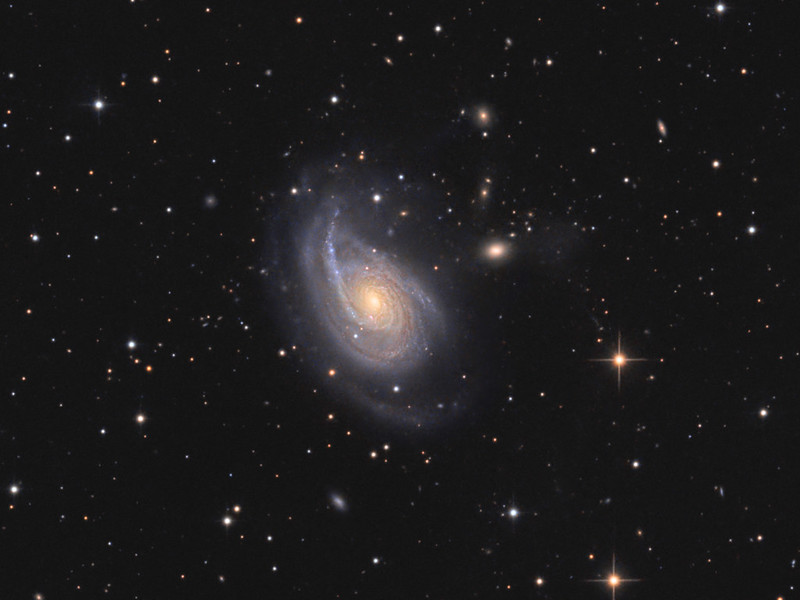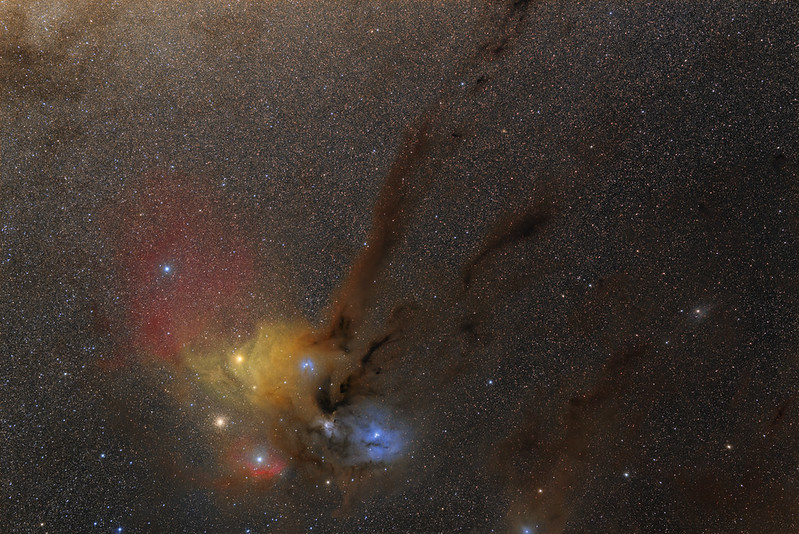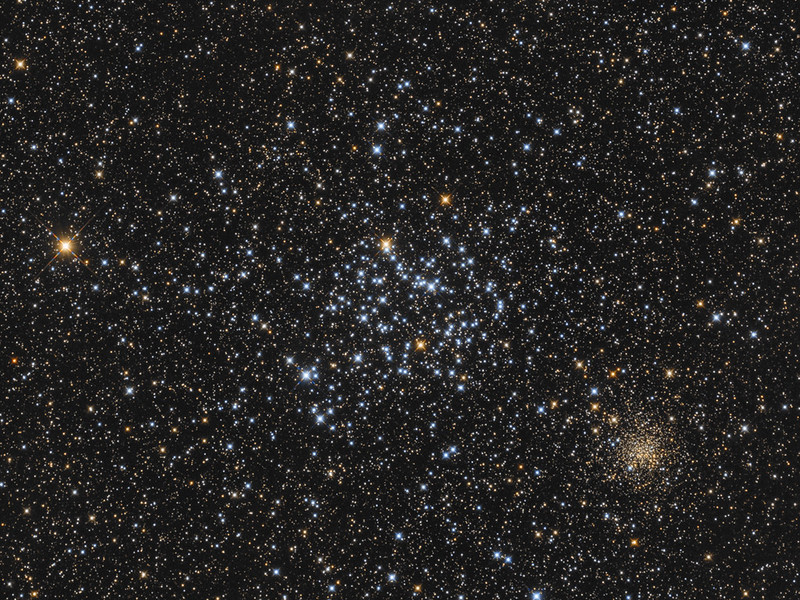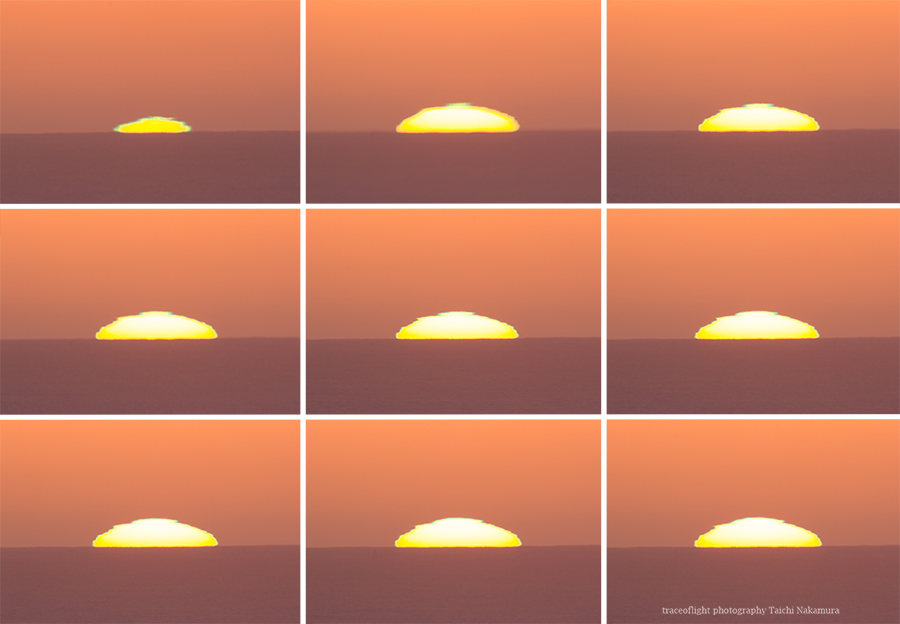Post
by Adrien Mauduit » Tue Dec 26, 2017 11:26 am
The way to the Alps
Credits: Adrien Mauduit
After an epic Xmas time with my family and friends, I wanted to share a very wintery picture taken three nights ago as I climbed the Station Monts Jura.
I've always wanted that shot showing the beauties of the winter milky way rising above the Alps with this magnificent view. There were three major hurdles that night though: the 24% moon was setting to the west and it was drowning deep-sky objects in the moonlight, hence the little contrast in the milky way and the bleu hue given to the whole picture. Then the unforgiving light pollution coming from Geneva and its surroundings did not help either. On top of that, occasional haze and airglow caused patches of different brightnesses and colors on the picture. However (and that is going to be the point of my tutorial), you can still take a gorgeous picture under these very challenging conditions, showing a lot of details. It was a very technical shots, because I used a tracker (Vixen Polarie) and a light pollution filter (Pure Night), but the picture consists of:
FOREGROUND: 1 row of 3 single landscape pictures at 50mm, f/2.8, ISO 1600, 40''
BACKGROUND: 3 rows of 3x3 stacked landscape pictures at 50mm, f/2.8, ISO 1600, 40''
Canon 6D Baader modded + Sigma 50mm Art f/1.4. So this blended stacked panorama had the exact same settings, date, time, place, orientation, lenses, camera...
It's a shame that you won't be able to zoom in on Facebook, but this very high quality 80 MegaPixel panorama shows excellent details when you zoom in on it thanks to the successive 50mm frames put back to back. From top to bottom, you can mainly see: Perseus, the California nebula, The Pleiades, Capella (and Auriga), the Flaming Star nebula, Gemini, Messier 35, NGC 2175 (Jellyfish nebula as well) the Hyades (Taurus), Orion (and all its nebulae), the Rosette nebula, the Christmas Tree Cluster, Procyon rising in the bottom left corner (Canis minor). You can also see me at an orientation table showing all the major mountains of the Alpine ridge. It is actually one of Europes most renowned and gorgeous vistas over the Alps (the highest peak to the right is Mont Blanc culminating at 4810m).
-
Attachments
-

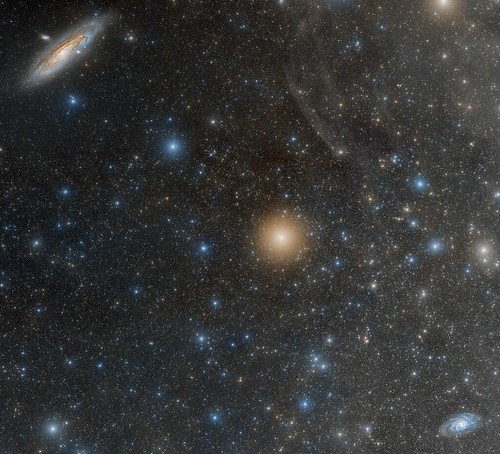 Andromeda&TrianguloFinalv2 by Raul Villaverde, en Flickr
Andromeda&TrianguloFinalv2 by Raul Villaverde, en Flickr Andromeda&TrianguloFinalv2 by Raul Villaverde, en Flickr
Andromeda&TrianguloFinalv2 by Raul Villaverde, en Flickr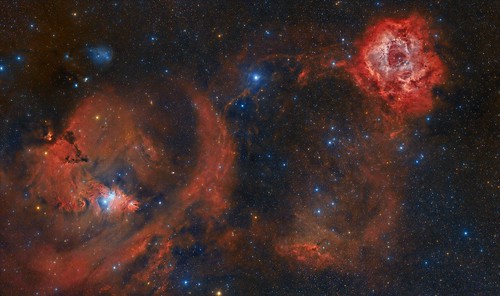 Monoceros RGB+Halfa+datos de Jose Jimenez by Raul Villaverde, en Flickr
Monoceros RGB+Halfa+datos de Jose Jimenez by Raul Villaverde, en Flickr